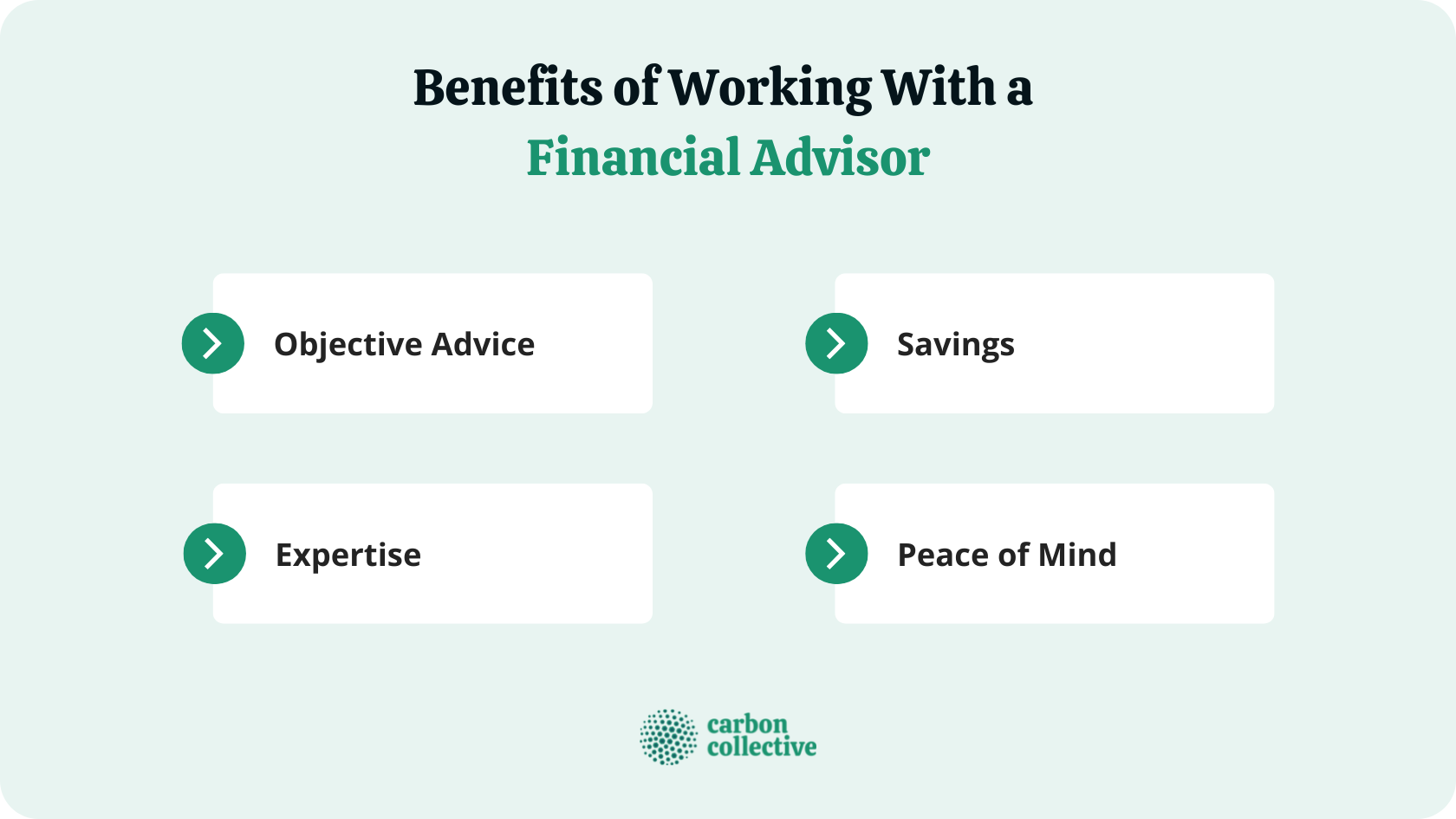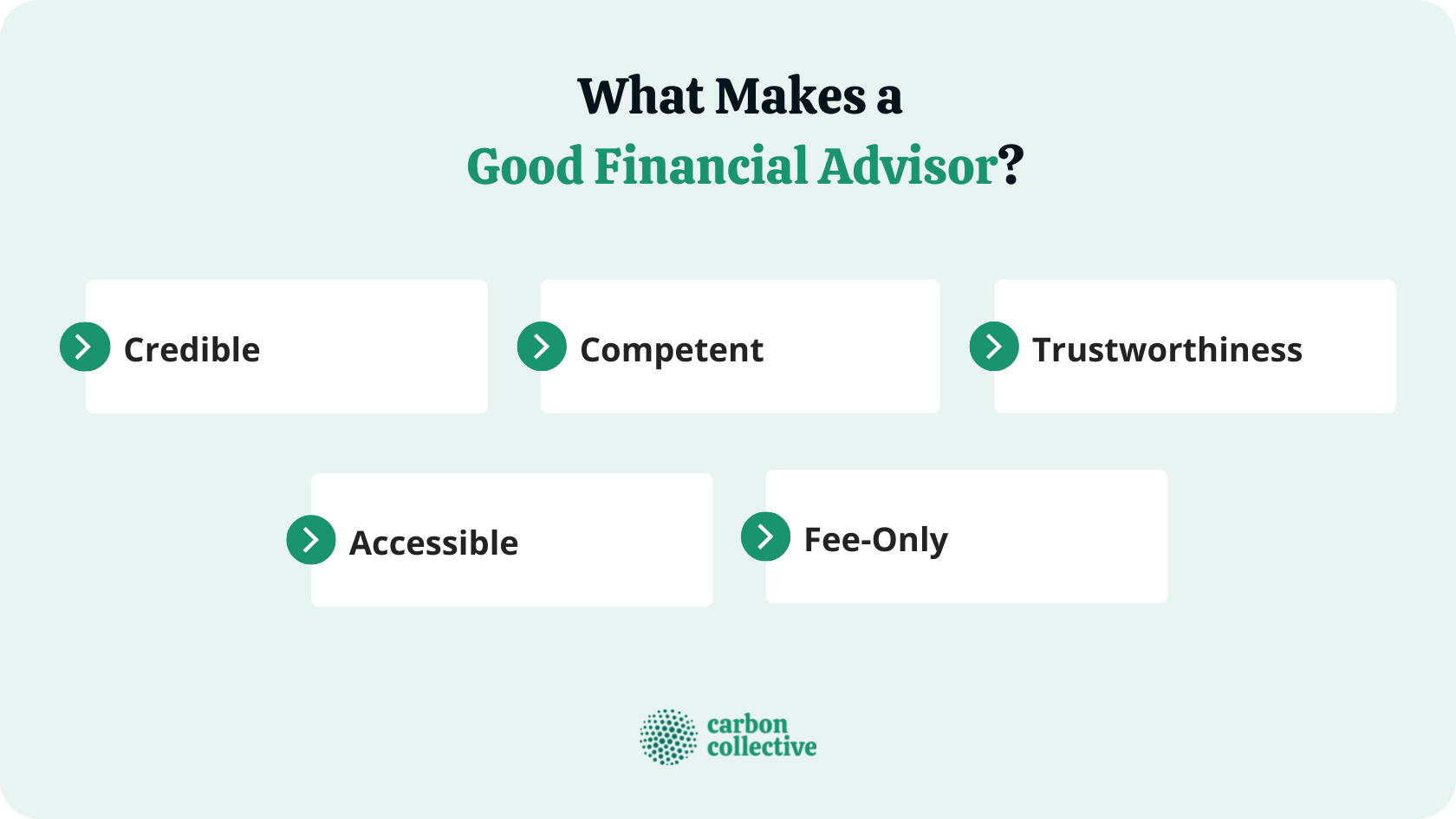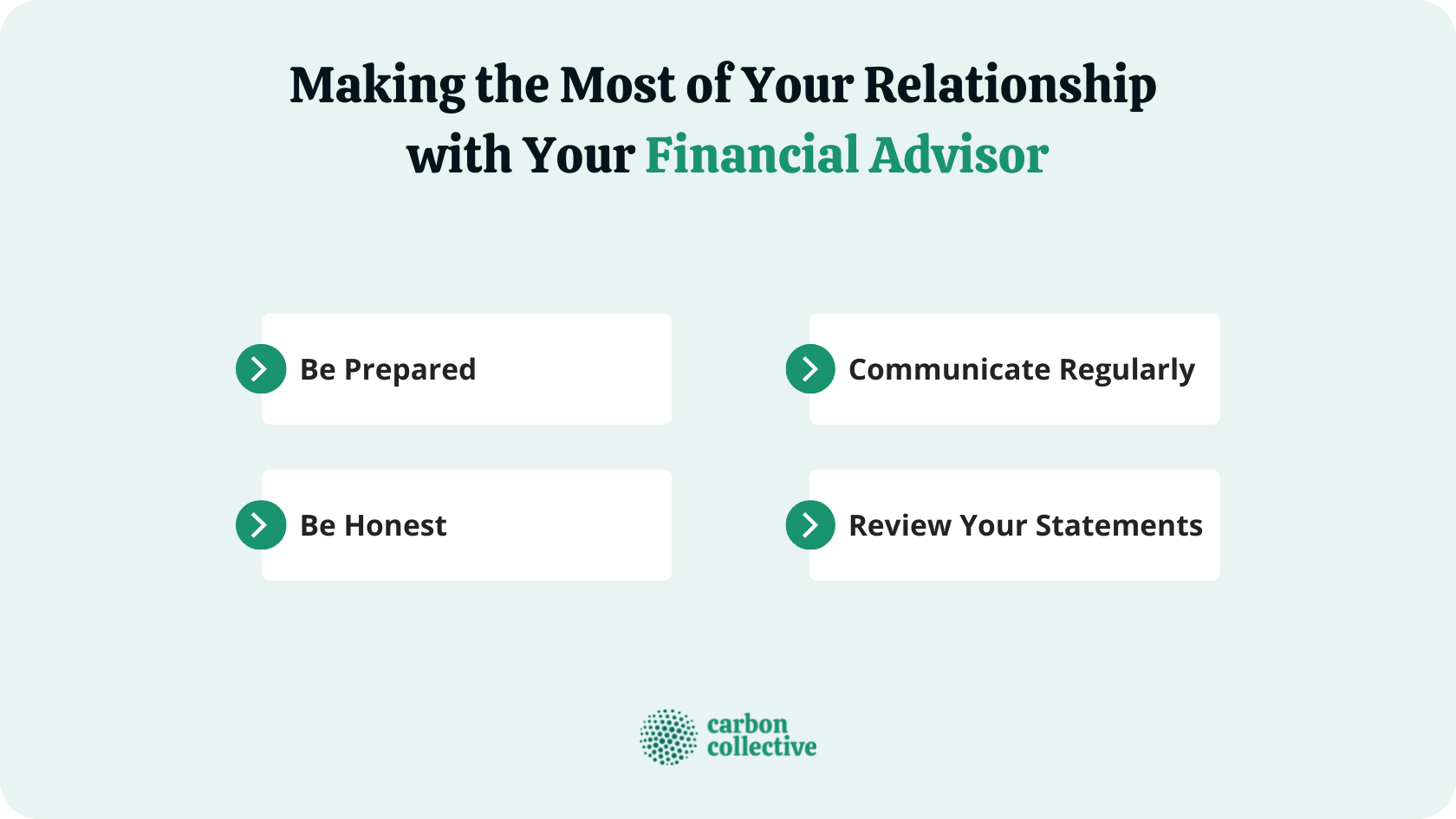What Does a Financial Advisor Do?
A financial advisor provides guidance and advice on how to best save, invest, and grow your money. They can help you set financial goals and create a plan to meet them.
Financial advisors can also offer tax planning and advice, retirement planning, estate planning, and insurance services.
Not all financial advisors are the same. Some may work for a commission, while others charge a fee for their services. Some may provide only investment advice, while others may offer comprehensive financial planning.
It’s important to find an advisor who is aligned with your needs and goals.
Benefits of Working With a Financial Advisor
Working with a financial advisor can offer many benefits, including:
- Objective Advice: A financial advisor can offer unbiased advice and recommendations based on your unique financial situation.
- Expertise: Financial advisors have the knowledge and experience to help you make informed decisions about your money.
- Savings: A financial advisor can help you find ways to save money and make your money work harder for you.
- Peace of Mind: A financial advisor can help you create a plan and provide guidance and support to help you reach your financial goals.

What to Look for When Choosing a Financial Advisor
When choosing a financial advisor, it’s important to consider the following:
- Check Their Credentials: Ensure the advisor is properly licensed and registered with the SEC or FINRA.
- Ask About Their Experience: Find out how long the advisor has been in business and what kind of clients they typically work with.
- Understand Their Fees: Be sure to ask about the advisor’s fees and how they are paid (commission, hourly, flat fee, etc.).
- Review Their Disclosures: Ask for a copy of the advisor’s Form ADV to learn more about their business practices, services, and fees.
- Get Recommendations: Talk to family and friends or look for online reviews to get recommendations for potential advisors.
Once you’ve found a few potential advisors, schedule a meeting to discuss your financial goals and ask any questions you may have.
What Makes a Good Financial Advisor?
A good financial advisor is someone who is:
- Credible: The best financial advisors have the proper credentials and experience. They should be able to provide you with references and answer any questions you have about their business practices.
- Competent: A good financial advisor is knowledgeable about various financial topics, including investing, tax planning, retirement, and estate planning.
- Trustworthiness: You should feel comfortable trusting your financial advisor with your personal information. Be sure to ask about their privacy policy and how they protect your data.
- Accessible: A good financial advisor is easy to get in touch with and quickly responds to your questions and concerns.
- Fee-Only: The best financial advisors do not receive commissions or other forms of compensation for the products they recommend. This aligns their interests with yours and helps to ensure that their advice is objective.
Finding a good financial advisor can be challenging, but it’s worth the effort. Working with a qualified and experienced advisor can help you reach your financial goals.
Financial Advisor Interview Questions to Ask
When meeting with a potential financial advisor, be sure to ask the following questions:
- Are you fiducially responsible for my investments? This question will help you determine if the advisor acts as a fiduciary.
- How are you paid? Advisors who are paid commissions may have incentives to sell certain products. Fee-only advisors do not receive commissions and are less likely to have conflicts of interest.
- What is your investment philosophy? This question will help you to understand the advisor’s approach to investing and whether it aligns with your own goals and risk tolerance.
- What experience do you have working with clients like me? This question will help you to determine if the advisor has experience working with clients who have similar financial needs and goals.
- What are the fees for your services? Be sure to ask about all fees associated with the advisor’s services, including asset management fees, advisory fees, and commissions.
- What are your qualifications? This question will help you to understand the advisor’s credentials and experience.
Making the Most of Your Relationship With Your Financial Advisor
Once you’ve found a good financial advisor, it’s important to make the most of your relationship. Here are a few tips:
- Be Prepared: Before meeting with your advisor, be sure to have a clear understanding of your goals and objectives. It can also be helpful to gather all relevant financial documents, such as tax returns, investment statements, and bank records.
- Be Honest: It’s important to be honest with your financial advisor about your finances, including your income, debts, and expenses. This information will help them to provide you with accurate advice.
- Communicate Regularly: Be sure to communicate with your advisor regularly to discuss your progress towards your goals and to update them on any changes in your financial situation.
- Review Your Statements: It’s important to review your investment statements regularly and to ask questions about anything you don’t understand. This will help you stay informed about your investments and ensure they are performing as expected.

The Bottom Line
Finding a good financial advisor can be challenging, but it’s worth the effort. Working with a qualified and experienced advisor can help you reach your financial goals.
Be sure to ask lots of questions and to communicate regularly with your advisor to make the most of your relationship. Review your investment statements regularly, and don’t hesitate to ask questions if you don’t understand something.
By following these tips, you can find a good financial advisor who will help you reach your financial goals.
FAQs
1. What is a financial advisor?
A financial advisor is a professional who provides guidance and advice on how to best manage your finances. Financial advisors can help you create a budget, save for retirement, and invest your money.
2. How do I find a good financial advisor?
There are several ways to find a good financial advisor. You can ask family and friends for recommendations, search online directories, or contact professional organizations such as FINRA or the CFP Board.
3. How much do financial advisors charge?
Financial advisors typically charge either an hourly rate, a flat fee, or a commission. Commissions vary depending on the products sold and can be either fixed or variable.
4. How often should I meet with my financial advisor?
It’s a good idea to meet with your financial advisor at least once a year to review your progress and ensure your investments are on track. You should also contact your advisor if there are any changes in your financial situation.
5. What should I expect from my financial advisor?
Your financial advisor should provide guidance and advice tailored to your individual needs and goals. They should also be able to answer any questions you have about your finances.
